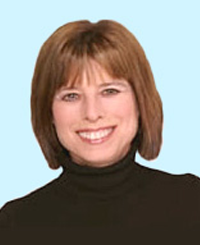HIGH BLOOD PRESSURE
Since the last two medical columns were about heart disease and the risk factors for it, Janet and I decided that it made sense to talk about those individual risk factors in detail. I\’ll begin with high blood pressure, also known as hypertension. This is another of those health problems which most often has no symptoms. But don\’t let that fool you. Though silent, high blood pressure can be deadly. According to recent research 40% of postmenopausal women have “prehypertension”. This is a condition where the blood pressure is not normal but is not quite at the hypertension level yet. This increases a woman\’s risk for cardiovascular death by 58%.
Definitions
Normal blood pressure is anything below a systolic or upper pressure of 120mm Hg and a diastolic or lower pressure of 80 mm g (120/80). High blood pressure is defined as a systolic pressure of 140 mm Hg or greater and a diastolic pressure of 90 mm Hg or greater (140/90). Prehypertension is the blood pressure group in between. It is the group with systolic pressures over 120 mm Hg but under140 mm Hg and diastolic pressures over 80 mm Hg but under 90 mm Hg.
Risk
The category of prehypertension is one that should not be ignored. The risk of developing heart disease by having a slightly elevated blood pressure is greater than the risk from smoking. This was studied as part of the Women\’s Health Initiative Study which not only looked at hormones, but also looked at blood pressure. Despite a woman\’s ethnicity, prehypertension increased a woman\’s chance for cardiovascular death by 58%, heart attack by 76%, stroke by 93% and heart failure by 36%. The risks for full blown high blood pressure are even greater.
How do you know you have it?
This is the tricky part. For many, high blood pressure is silent. For this reason it is important that you have your blood pressure checked on a regular basis. There are some inexpensive monitors you can buy if you want to check it at home, otherwise most doctors offices will do it for free.
For those people who do have symptoms from their high blood pressure, these symptoms may include dull headache, ringing in the ears, or dizziness. Some of these patients even experience transient stroke symptoms, such as weakness in an extremity or on one side of the face.
What causes it?
When your blood vessels get stiff, it takes more pressure to pump the blood through. This is probably the most common cause, which is due to age. Over the counter pain medication can contribute. One large study found that women who took 500 mgs per day of acetaminophen over years were more likely to develop high blood pressure. Cold medications can increase blood pressure and of course drugs like amphetamines can also do it. There are certain conditions such as kidney disease and adrenal problems that can cause high blood pressure, but these only account for 10% of cases. Family history, excessive weight, a sedentary lifestyle, smoking, high salt intake and low potassium intake are all factors that can cause or increase the likelihood of developing high blood pressure.
What can be done about it?
Once again there are some simple measures that you can take to help lower your blood pressure, diet and exercise. The Omega or Mediterranean diet has been found to lower high blood pressure and improve cardiac risk. It also tastes great! This is a diet rich in fruits, vegetables and Omega-3 fatty acids. Exercise can also lower blood pressure as well as help you maintain a healthy weight. If this isn\’t enough, there are a wide variety of medications available to help.
The Bottom Line:
If you can bring your blood pressure down into the normal range whether by diet, exercise or medication, you can lower your risks of heart disease and stroke. These risks, when high blood pressure is left untreated, are substantial. The key is to find out if you do have high blood pressure and then swing into action. It is a silent killer you really want to avoid!



Leave a Reply
You must be logged in to post a comment.